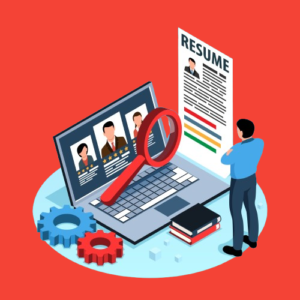In today’s dynamic working environment, many professionals face periods when they are not employed full-time. Career breaks are increasingly common, whether due to personal reasons, further education, or pursuing other passions. However, presenting career breaks in your CV can feel challenging. How do you explain time away from work without making it seem like a red flag to potential employers?
In this article, we’ll explore how to effectively explain career breaks in your CV. Whether you took time off to travel, care for family, or upskill, we’ll cover the best ways to present your time away with confidence, professionalism, and transparency.
Understanding the Stigma Surrounding Career Breaks
Historically, career breaks were viewed with suspicion. Hiring managers often questioned the reason for gaps in employment, associating them with a lack of commitment or capability. However, as workplace cultures have evolved, so has the perception of career breaks.
Today, employers are increasingly open to candidates with varied career paths. In fact, the modern job market values skills, experience, and versatility, which can sometimes be honed during career breaks. Yet, the key lies in how you frame this time in your CV.
Read More: The UK CV Format: A Breakdown of Key Sections and Content
Changing Employer Mindsets
- Increased Focus on Skills: More companies now focus on the candidate’s skills, achievements, and the value they bring, rather than adhering strictly to continuous employment.
- Diverse Experiences Matter: Career breaks can bring diverse experiences, like cultural exposure or new perspectives, that enrich a candidate’s profile.
- Flexible Work Cultures: The rise of remote work and flexible hours has softened the rigid structure of traditional employment.
It’s important to understand that while career breaks may still raise questions, how you explain them can determine whether they work in your favour.
Why Career Breaks Occur
Before learning how to explain career breaks in your CV, it’s crucial to reflect on why you took time away from work. Not only will this help you better explain the break, but it can also help you highlight valuable experiences gained during this time. Common reasons for career breaks include:
- Family responsibilities: Caring for children, parents, or relatives.
- Health reasons: Taking time off to recover from illness or manage long-term health issues.
- Travel: Exploring the world or engaging in cultural immersion.
- Upskilling: Pursuing further education or professional development.
- Volunteering: Participating in community service or charity work.
- Burnout: Taking a break to focus on mental well-being and recovery.
Each of these reasons can bring valuable life lessons, new skills, or a fresh perspective—assets that employers may appreciate. The challenge is to frame them appropriately in your CV.
Should You Include Career Breaks in Your CV?
One of the first questions candidates face is whether to include career breaks in their CV at all. Some may feel tempted to omit the gap, hoping that a recruiter won’t notice. However, honesty is critical. Gaps will be evident in your employment history, and avoiding them can create suspicion.
Why honesty is important:
- Employers often check references and conduct background checks. Failing to mention a break may harm your credibility.
- Honesty demonstrates integrity and allows you to explain your situation proactively.
By including your career break in your CV, you can shape the narrative and focus on the positives. It’s better to address the gap upfront than to leave employers guessing.
How to Explain Career Breaks in Your CV
Use a Functional or Skills-Based CV Format:
If you’re concerned that a career break might overshadow your achievements, consider a functional CV format, which emphasises skills over chronological employment history. By focusing on competencies such as project management, leadership, or communication, you can redirect the recruiter’s attention to your capabilities rather than employment gaps.
Advantages of a skills-based CV:
- Highlights transferable skills.
- Minimises focus on exact dates of employment.
- Ideal for those with varied experiences or gaps.However, some industries prefer chronological CVs, so you’ll need to judge whether a functional CV format suits your field.
- Label the Career Break Clearly: When you’re listing your employment history, label your career break clearly. Instead of leaving a gap in the timeline, explicitly mention the break, just as you would for any other job. For example:Career Break
June 2020 – September 2021
In the bullet points below, explain the reason for the break and highlight any relevant experiences gained during this time.
Be Honest but Concise:
When explaining career breaks in your CV, honesty is essential, but keep the explanation brief. Employers don’t need a full story—just enough context to understand the reason for your break. Here are some examples:
- Family Reasons: “Took a 12-month career break to care for a family member, during which I developed strong time-management and multitasking skills.”
- Health Recovery: “Took a career break to focus on health recovery. Ready to bring my refreshed energy and focus back into the workplace.”
- Volunteering: “Took an 8-month career break to volunteer with a local charity, gaining valuable leadership and organisational skills.”
Being brief and positive helps maintain a professional tone without over-explaining.
Highlight Skills Gained During the Break
Even if your career break wasn’t work-related, you can often highlight transferable skills or experiences. For example:
- Problem-solving: “During my career break, I honed my problem-solving abilities by managing a complex family situation.”
- Leadership: “While volunteering in community service, I led a team of 20 volunteers, enhancing my leadership and collaboration skills.”
- Time Management: “Juggling personal responsibilities during my career break helped sharpen my organisational and time-management skills.”
Framing your career break as a time of personal growth and skill development can be impressive to employers.
Tackling the Career Break in Your Cover Letter
Your cover letter is another opportunity to address your career break, though briefly. Here, you can provide context and emphasise your readiness to return to work. For example:
“I took a two-year career break to focus on family responsibilities. During this time, I further developed my organisational and multitasking abilities. Now, I am fully prepared and eager to apply my refreshed skill set to contribute to [Company Name].”
The cover letter should focus on what you bring to the table, with the career break explanation taking no more than 1-2 sentences.
Read More: Land your first internship with our Expert CV writing service

Preparing for Interview Questions About Career Breaks
Once you’ve included your career break in your CV and cover letter, you should be prepared to discuss it in interviews. Employers may ask why you took time off or how you’ve stayed connected to the industry during your break. Keep these tips in mind:
- Stay positive: Frame the career break as a positive experience that allowed you to gain perspective or new skills.
- Be confident: Confidence in your explanation signals to the employer that you are ready to return to the workforce.
- Focus on the future: Shift the conversation towards your excitement for the role and the value you bring.
Common Mistakes to Avoid while Explaining Career Breaks in your CV
When explaining career breaks in your CV, it’s important to avoid certain pitfalls that could negatively impact how recruiters perceive you. Here are a few mistakes to watch out for:
- Over-explaining: Keep your explanations short and to the point. Employers don’t need every detail.
- Being vague: A vague explanation can make it seem like you’re hiding something. Be clear about the reason for your career break.
- Downplaying the break: If you gained valuable experience or skills during the break, don’t be afraid to highlight them.
- Not addressing the break: Leaving a gap unexplained may raise red flags, leading employers to question your transparency.
Take Ownership of Your Career Break
Taking a break from your career is a natural part of life for many people, and it doesn’t have to be a setback in your professional journey. When explaining career breaks in your CV, the key is to be honest, concise, and positive. Focus on the skills and experiences you gained during your time away and show employers that you’re ready to return to work with renewed energy and enthusiasm.
By framing your career break as a period of growth, you can present yourself as a well-rounded and adaptable candidate—one who brings more to the table than just a traditional employment history.
Remember, your career is a journey, not a linear path, and each step brings you closer to your next opportunity.
Get your CV checked and improve it with section based detailed recommendation, for free: Brand Me 4 Job Free CV Check
Get your LinkedIn Profile Optimised alongside an entire range of Personal Branding: www.brandme4job.com
Join www.stunited.org to build a wide network in the United Kingdom.
Contact us to get Career Assistance in the UK: Call Us Now!
#Brandme4job #Brandme4job.com #PersonalBranding #JobSkillsTraining #E-BookStore #OnlineBooks #SkillDevelopment #UKJobMarket #CareerBranding #CareerInTheUK #JobsInTheUK #CareerOpportunities #JobAssistance #DesignerCV #ATSEnabledCV #AICV #ProfileOptimisation #StunitedProfileOptimisation #CoverLetter #CandidateBooklet #EPortfolio #MagazineFeature #LinkedInOptimisation #CVforUKJobs #UKCV #CompleteGuideline #HowToExplainCareerBreaks




